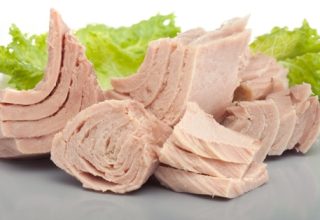Does Protein Make You Gain Weight?

A common theory about protein consumption is that it can help prevent and fight obesity by better managing the body’s load. Protein breaks down more slowly than carbohydrates, so it can help you feel fuller longer and keep you from getting hungry mid-meal, allowing you to snack less. However, some disagree about whether proteins are safe and effective for long-term health.
A recent study found that a high-protein diet can lead to weight gain. Individuals whose diet consists of more than 20% protein, especially animal protein, are more likely to gain more weight than those who consume 10% protein. However, protein is an essential nutrient that helps maintain body load, so knowing how much protein to consume can be confusing.
If you consume more than your body needs for muscle growth and repair, you may start to gain weight. The nitrogen components of the extra protein are removed and enter the gluconeogenesis cycle. Here, your body cannot distinguish between the glycogen it produces and carbohydrates, so it starts to store more body fat.
The Relationship Between Protein and Weight Gain
Simply put, consuming too much of anything can be wasteful – protein consumption is no different. If you consume protein for longer than your body needs, it can cause negative effects such as weight gain. Also, how you consume your protein plays a role in managing body load.
How much protein should we consume daily?
Your daily protein needs will vary depending on your lifestyle, goals, body type, pregnancy, and underlying disease or conditions. For example, a highly active individual, such as a sportsman or athlete, should not consume more than 2 g of protein per kg of body weight. At one time, a healthy individual with a normal level of physical activity should consume approximately 0.8 g of protein per kilogram of body load. Anything over that can cause unhealthy weight gain.
Scientifically, your body can convert and store any macronutrient into stored fat. So if you eat too much protein, your body may convert it into sugar and store it as fat, depending on the ease of access to other forms of power.
While consuming protein, you can eat protein-rich foods that contain calories. One of the most overlooked facts about protein is that protein-rich foods and supplements can also have calories. Therefore, consuming too much and not burning can cause negative effects. It’s no secret that consuming more calories than you burn daily will always lead to weight gain. However, the truthful advice of a fitness coach or expert nutritionist can help you better understand and classify your proteins.
Simple strategies to reduce other macronutrients while increasing your intake can help. However, there are other risks of consuming too much protein over time. For example, it can damage the kidneys or adversely affect cardiovascular health.
Protein plays a vital role in maintaining your overall well-being. But consuming too much will lead to weight gain over time. This is especially true if you exceed the recommended calorie intake. Therefore, if your goal is to lose weight, you should pay attention to your total calorie intake. However, if your goal is to gain weight, the most valuable thing is to increase your total calorie intake by sticking to 20-30% of calories from protein intake along with carbohydrates and fat.
Avoid These Common Defects to Prevent Unhealthy Protein-Induced Weight Gain
The only way to gain unhealthy weight due to protein consumption is to consume too much or prepare it in an unhealthy form.
Some of the successful ways to prevent unhealthy weight gain include:
- Make sure you don’t consume too many calories (which you can burn) from your protein-rich foods.
- Running, gym workouts etc. Stay physically active by participating in physical activities such as
- Consult a qualified nutritionist to understand your body’s protein needs.
- Pay attention to the foods you choose to meet your daily protein requirement.
Protein Sources That May Contribute to Weight Gain
protein powder
Not having an adequate workout routine and using too much protein powder can cause weight gain; If you increase your protein intake without changing other nutrients in your diet to offset the increased calories, you will start to gain weight. Protein powder may be helpful for those trying to gain weight, but if you’re trying to lose weight, you should use it judiciously.
Those who want to gain weight struggle with loss of appetite. Protein powders are an easy way to increase your protein intake without eating more complete nutrients. Depending on the brand and protein content, protein powders vary. Therefore, consult a dietitian to determine which one is best for you. Experts will guide you to the right option to suit your health needs.
Yogurt
Store-bought yogurt often claims to be high in protein, but you shouldn’t consume it daily as it may contain added sugar and ham. Additionally, they are unhealthy for you as they add sweeteners. Homemade yogurts are always the best choice.
meat
Meat is all high in protein, cholesterol, saturated fat, and calories. Also, since it does not contain fiber, you are more likely to overeat. But lean chicken meat helps you build muscle, preventing unwanted weight gain.
processed cheese
Cheese is a decent source of protein, calcium and other essential elements. But being conscious of the cheese you eat is very valuable. Avoid processed cheese if you want to prevent weight gain.
- On-Site Comments



















Comment